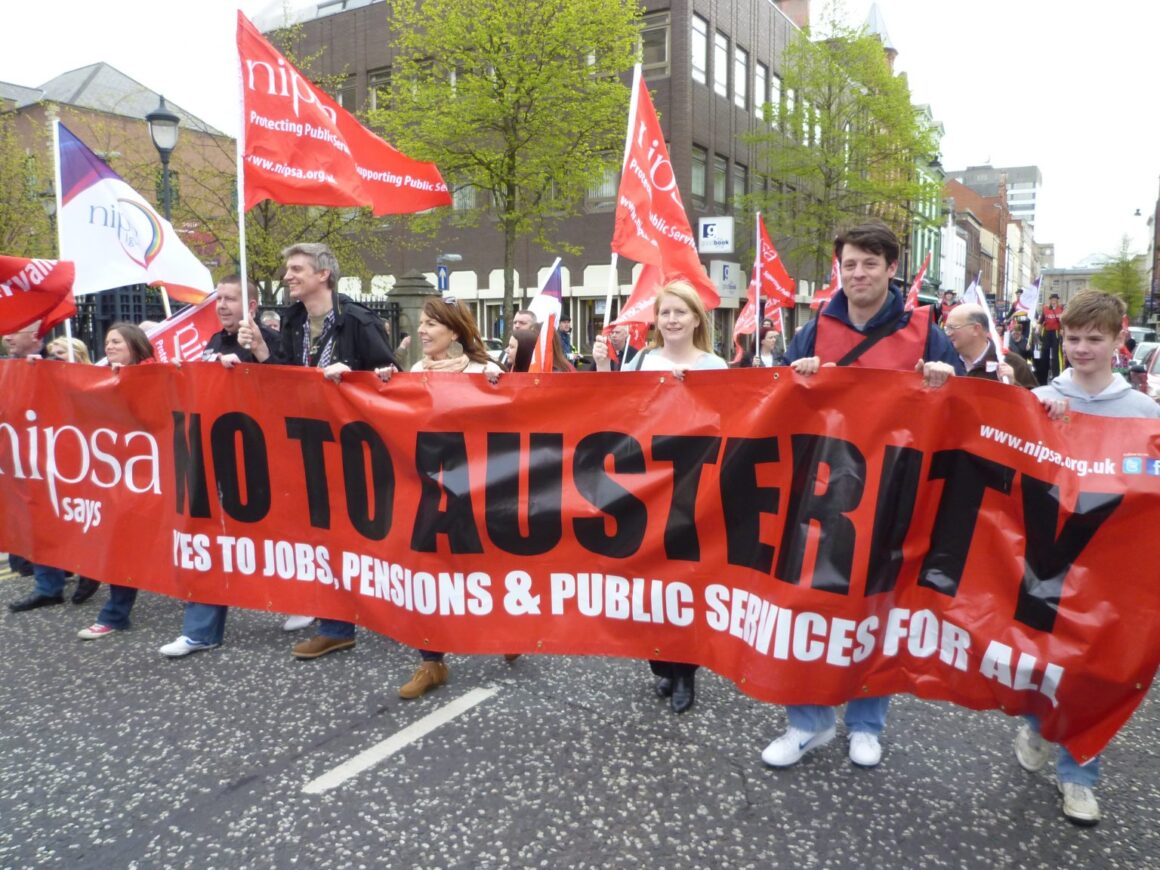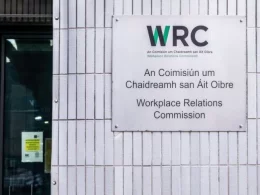By Kevin Henry
In the aftermath of the historic 1984/5 miners’ strike in Britain, Margaret Thatcher as part of her war against the trade union movement and working-class people introduced a series of measures to curtail the right to strike. These laws have been described as the most draconian in Western Europe. The Trade Union Freedom Bill proposed by People Before Profit’s Gerry Carroll was the first-ever attempt to remove these draconian laws from the statute book in Northern Ireland, even though Stormont has had this power for decades. The bill would have allowed workers the right to engage in solidarity strikes and strengthened the ability of trade unions to organise. A majority of MLAs this week voted down this bill allowing Thatcher’s laws to remain in force.
MLAs: which side are they on?
Unsurprisingly, the bill was subjected to the cliche attack by DUP representatives as looking to bring industrial relations “back to 1970s.” Including that it would bring back political strikes, conveniently ignoring their own history of arguing for “political strikes” such as the ulster workers’ stoppages in the 1970s. Alongside the DUP, UUP and Alliance MLAs voted against the bill. This speaks to the true character of these parties who have postured as “progressive” in the recent period but have a long history of supporting anti-worker and Thatcherite measures. Quite tellingly, none of the two Green Party MLAs showed up to this important debate and did not organise proxy votes.
In the Assembly debate, the Alliance spokesperson, Stewart Dickson, emphasised his trade union credentials and history, only to echo the DUP in the fear of a return to the 1970s and emphasise the need for compromise between employers and workers instead of undermining the “competitiveness” of business here. But what is business “competitiveness” based on? It is based on low pay and a race to the bottom in terms of conditions, something that is strengthened by the lack of trade union rights. Dickson may be proud of his trade union record but like the vast majority of MLAs, he is firmly on the other side of the line when it comes to the interests of workers.
Even from those who voted in favour of the bill, support was lukewarm at best. The SDLP’s Mathew O’Toole claimed to support the principles of the bill but argued that it is “not one we would like to see introduced”, indicating he would be suggesting the removal of important parts on further legislative stages. This was to include a provision that meant a smaller number of workers would be able to get collective bargaining rights. Likewise, Sinn Fein has been often on the other side of picket lines when their ministers have implemented attacks on workers.
Break trade union laws
The Socialist Party supports any effort to scrap laws that curtail the right to strike. We support any laws which strengthen the right of workers to organise. This includes removing the requirement to give one week’s notice before taking action. There shouldn’t be restrictions on what issues trade unions can negotiate with management and employers on. We also favour the right of workers to be able to use online ballots for strike action. In fact it is necessary to go further than this and defend the right of workers to vote for strike action simply at workplace or union meetings.
At the moment 93% of workplaces in Northern Ireland have less than 21 employees, but anti-trade union laws mean workers in businesses with less than 21 employees are not subjected to rules that force an unwilling employer to recognise their collective bargaining. We support the attempt in Gerry Carroll’s bill to significantly reduce that.
Importantly it includes workers having the right to engage in solidarity strike action. The example of workers in the 1980s engaging in solidarity action to win important pay claims of health care workers is relevant for us today. Such action should not only be legally possible today but is an example of the type of action we need to support for example health workers who have been working under awful conditions during covid only to receive an insulting pay offer from both the Tories and Stormont Executive. Workers should also have the right to take action on issues deemed “political,” in Northern Ireland workers have correctly engaged in strike action in response to sectarian attack and intimidation, they have every right and indeed a responsibility to do so.
Build a fighting trade union movement
While the Socialist Party and our members in the trade union movement support every measure to remove anti-union laws, we also believe workers and trade unions should be prepared to break these laws in order to have effective action. The refusal to defy such laws at times has played an important role in undermining effective strike action and solidarity. Conversely, when workers have on mass defied anti-trade union laws it has assisted in winning important victories. While these laws are an obstacle to organising and taking effective strike action, they aren’t the insurmountable barrier that some in the trade union movement present them as.
The recent increase in strike action and ballots for strike action in many sectors means that these issues aren’t going away. We are likely to see further industrial action of workers across the public and private sectors in the coming months largely due to the cost of living crisis forcing more workers to take action. For a large sector of workers currently unorganised, particularly young workers, the cost of living crisis can demonstrate the urgent need to organise. The trade union movement, whose leadership across the board has been timid and conservative about organising these workers, should change course and energetically fight to organise sections of workers such as call centre workers and agency workers in the public sector.
The fact that the Assembly has now in effect voted to endorse Thatcher’s anti-trade union laws illustrates the real character of parties including those who posture as pro-worker. The long history of the Executive implementing attacks on workers further demonstrates this. The approach of trade union leaders in maintaining a cosy relationship with these parties goes against the basic interest of the members they are meant to represent. Instead, we need an approach that politically challenges these politicians and puts forward an alternative that can unite working-class people across the sectarian divide. Such an approach of fighting politically and industrially would a mean return to the traditions of figures like Jim Larkin. If you agree that is needed we encourage you to discuss with Socialist Party members in the trade unions how that can be built.











